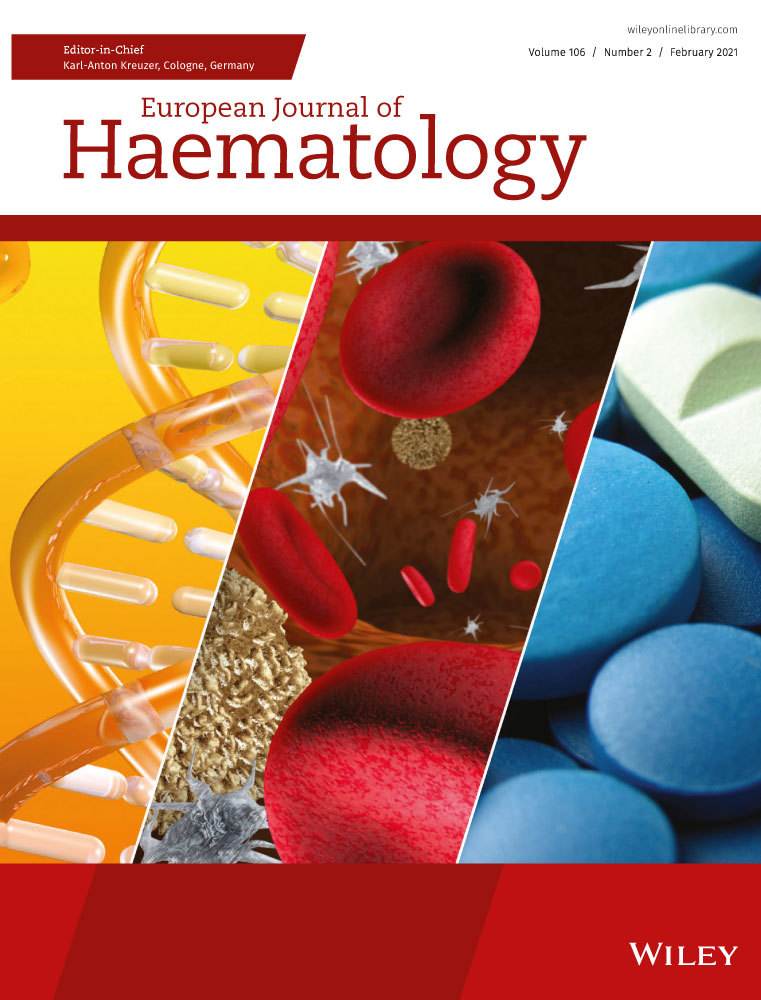Weight-based mycophenolate mofetil dosing predicts acute GVHD and relapse after allogeneic hematopoietic cell transplantation
Abstract
Objectives
Higher MMF dose can reduce acute GVHD risk after allogeneic hematopoietic cell transplantation (HCT). We examined the effect of MMF dose, relative to patient actual body weight (mg/kg/day), on outcomes of 680 adults after HCT.
Methods
MMF was combined with cyclosporine (n = 599) or sirolimus (n = 81). We divided MMF dose/kg/day in quartiles.
Results
The median time to grade II-IV acute GVHD was 32 days. The incidence of grade II-IV acute GVHD at day 30 was 30% in 1st (<29), 20% in 2nd (29-34), 16% in 3rd (35-41), and 19% in 4th (≥42) quartile (P < .01). Corresponding relapse incidence at 1 year was 16%, 25%, 27%, and 31%, respectively (P = .01). In multivariate analysis, as compared to 1st quartile, higher dose of weight-based MMF reduced grade II-IV acute GVHD (HR = 0.64 for 2nd, HR = 0.48 for 3rd, and HR = 0.55 for 4th quartile), but increased the risk of relapse (HR = 1.63 for 2nd, HR = 1.75 for 3rd, and HR = 2.31 for 4th quartile).
Conclusions
Weight-based MMF dose had no significant impact on engraftment, chronic GVHD, or survival. These data suggest that higher weight-based MMF dose reduces the risk of acute GVHD at the expense of increased relapse and supports conducting prospective studies to optimize MMF dosing after HCT.
CONFLICT OF INTEREST
The authors declare no competing financial interests.
Open Research
DATA AVAILABILITY STATEMENT
Data available on request from the authors. The data that support the findings of this study are available from the corresponding author upon reasonable request.




